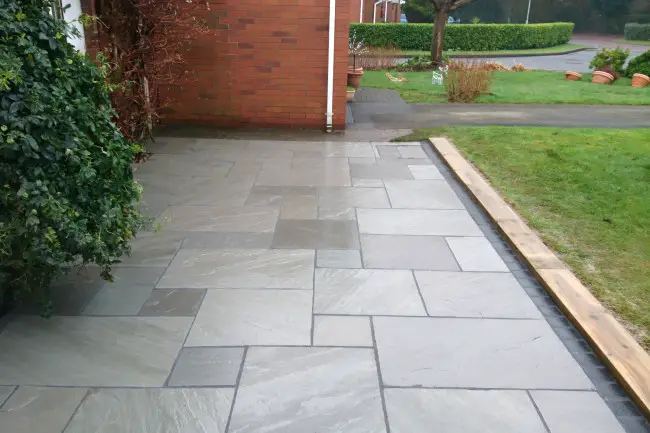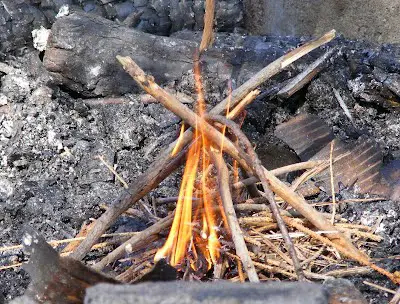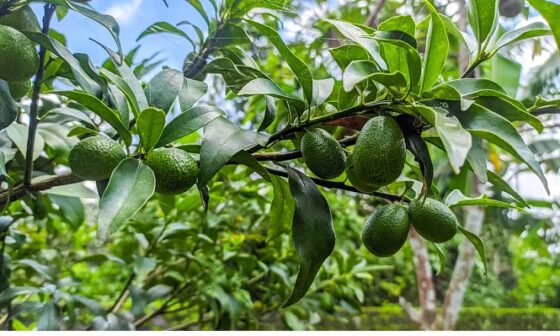
Cleaning paving slabs can be a daunting task, especially when you don’t have access to a pressure washer.
Whether you want to restore the beauty of your patio or simply remove stubborn stains and grime, there are several effective methods that don’t require a pressure washer.
Why Clean Paving Slabs?
Paving slabs are exposed to various environmental elements, such as dirt, moss, algae, and stains.
Over time, these factors can diminish the visual appeal of your outdoor areas and even pose safety hazards.
Cleaning your paving slabs not only enhances the aesthetics of your patio or driveway but also helps prolong their lifespan.
Regular maintenance and cleaning can prevent the growth of weeds, moss, and algae, ensuring a clean and safe surface for your outdoor activities.
Materials Needed
Before diving into the cleaning process, gather the following materials:
- Broom
- Stiff bristle brush
- Garden hose
- Bucket
- Mild detergent or soap
- Vinegar
- Bleach (optional)
- Baking soda
- Water
Preparation
Start by preparing the area you wish to clean. Remove any furniture, plants, or objects obstructing the paving slabs.
This will allow you to have better access and ensure a thorough cleaning process. Additionally, sweep away loose debris, such as leaves and dirt, before proceeding to the next step.
Removing Loose Debris
Using a broom, gently sweep the entire surface of the paving slabs. This will help remove loose debris, making it easier to clean the stains and grime later on.
Pay attention to the corners and edges, where dirt tends to accumulate. Once you have removed the loose debris, you can proceed to the next cleaning method.
Using a Broom and Hose
If you don’t have access to a pressure washer, a broom and hose can be a great alternative. Start by wetting the paving slabs with a garden hose.
This will loosen the dirt and make the cleaning process more effective. Next, dip the broom in a bucket of soapy water or mild detergent and scrub the surface in a circular motion.
Pay extra attention to stained areas or spots with stubborn grime. Rinse the paving slabs thoroughly with the hose to remove the soapy residue.
Repeat the process if necessary until you achieve the desired cleanliness.
Creating Homemade Cleaning Solutions
If you prefer natural and homemade solutions, there are several effective mixtures you can create to clean your paving slabs.
Here are a few examples:
1. Vinegar and Water
Vinegar is a versatile cleaning agent that can tackle various stains and grime. Mix equal parts of vinegar and water in a spray bottle.
Spray the solution onto the paving slabs and let it sit for a few minutes.
Then, scrub the surface with a stiff bristle brush and rinse with water. Vinegar is particularly useful for removing mold, mildew, and algae.
2. Baking Soda and Water
Baking soda is another excellent natural cleaner that can remove tough stains. Create a paste by mixing baking soda with water.
Apply the paste to the stained areas and let it sit for about 15 minutes. Scrub the surface with a stiff brush and rinse thoroughly. Baking soda is effective against grease stains, oil spills, and general dirt buildup.
Scrubbing with a Stiff Bristle Brush
When dealing with stubborn stains and grime, a stiff bristle brush can be a valuable tool. After wetting the paving slabs, apply a suitable cleaning solution, such as a homemade mixture or a commercial cleaner.
Use the stiff bristle brush to scrub the surface vigorously, focusing on the stained areas. Apply pressure as needed, but be careful not to damage the slabs.
Rinse thoroughly with water to remove the loosened dirt and cleaning solution.
Using Vinegar
Vinegar is an effective and eco-friendly cleaning solution that can be used on its own or in combination with other ingredients.
Its acidic nature helps dissolve dirt, grime, and organic stains.
To use vinegar for cleaning your paving slabs, follow these steps:
- Dilute vinegar with water in a 1:1 ratio.
- Pour the mixture directly onto the stained areas.
- Allow the vinegar solution to sit for about 10 minutes.
- Scrub the surface with a stiff bristle brush.
- Rinse the area thoroughly with water.
Bleaching Paving Slabs
Bleaching can be an effective method for removing tough stains from paving slabs.
However, it’s important to use caution when working with bleach, as it can damage nearby plants and discolor certain types of stone. If you decide to use bleach, follow these steps:
- Dilute bleach with water in a well-ventilated area.
- Wet the paving slabs with water before applying the bleach solution.
- Apply the diluted bleach to the stained areas.
- Let the bleach sit for a few minutes, but avoid letting it dry on the surface.
- Scrub the stains with a stiff bristle brush.
- Rinse the area thoroughly with water to remove the bleach residue.
Using Baking Soda and Water
Baking soda is a gentle yet effective abrasive cleaner that can help lift dirt and stains from paving slabs.
Here’s how to use baking soda for cleaning:
- Create a paste by mixing baking soda with water.
- Apply the paste to the stained areas.
- Gently scrub the surface using a stiff bristle brush.
- Allow the paste to sit for a few minutes.
- Rinse the area thoroughly with water.
Pressure Washing Alternatives
While pressure washers are effective for cleaning paving slabs, they are not always accessible to everyone. Here are a few alternatives to pressure washing:
-
Use a high-powered hose nozzle: Attach a high-pressure nozzle to your garden hose to increase the water pressure. This can help remove dirt and grime from the paving slabs.
-
Rent a power broom: Power brooms are specifically designed for cleaning outdoor surfaces. They can provide a similar cleaning effect as a pressure washer but without the high-pressure water stream.
-
Hire professional cleaners: If you prefer to leave the task to professionals, consider hiring a cleaning service that specializes in outdoor surface cleaning. They have the necessary equipment and expertise to clean your paving slabs effectively.
Preventing Future Stains
To maintain the cleanliness of your paving slabs and prevent future stains, consider implementing these preventive measures:
-
Regular sweeping: Remove debris and leaves from the surface of the slabs to prevent them from decomposing and staining the surface.
- Apply a sealant: Using a suitable sealant can protect the paving slabs from staining agents and make future cleaning easier. Follow the manufacturer’s instructions for proper application.
- Clean spills immediately: If you accidentally spill oil, grease, or any other staining substance on the paving slabs, clean it up as soon as possible to minimize the chances of a permanent stain.
-
Regular maintenance: Conduct routine maintenance by inspecting the paving slabs for signs of damage, such as cracks or loose joints. Repair any issues promptly to prevent further damage.



Comments are closed.